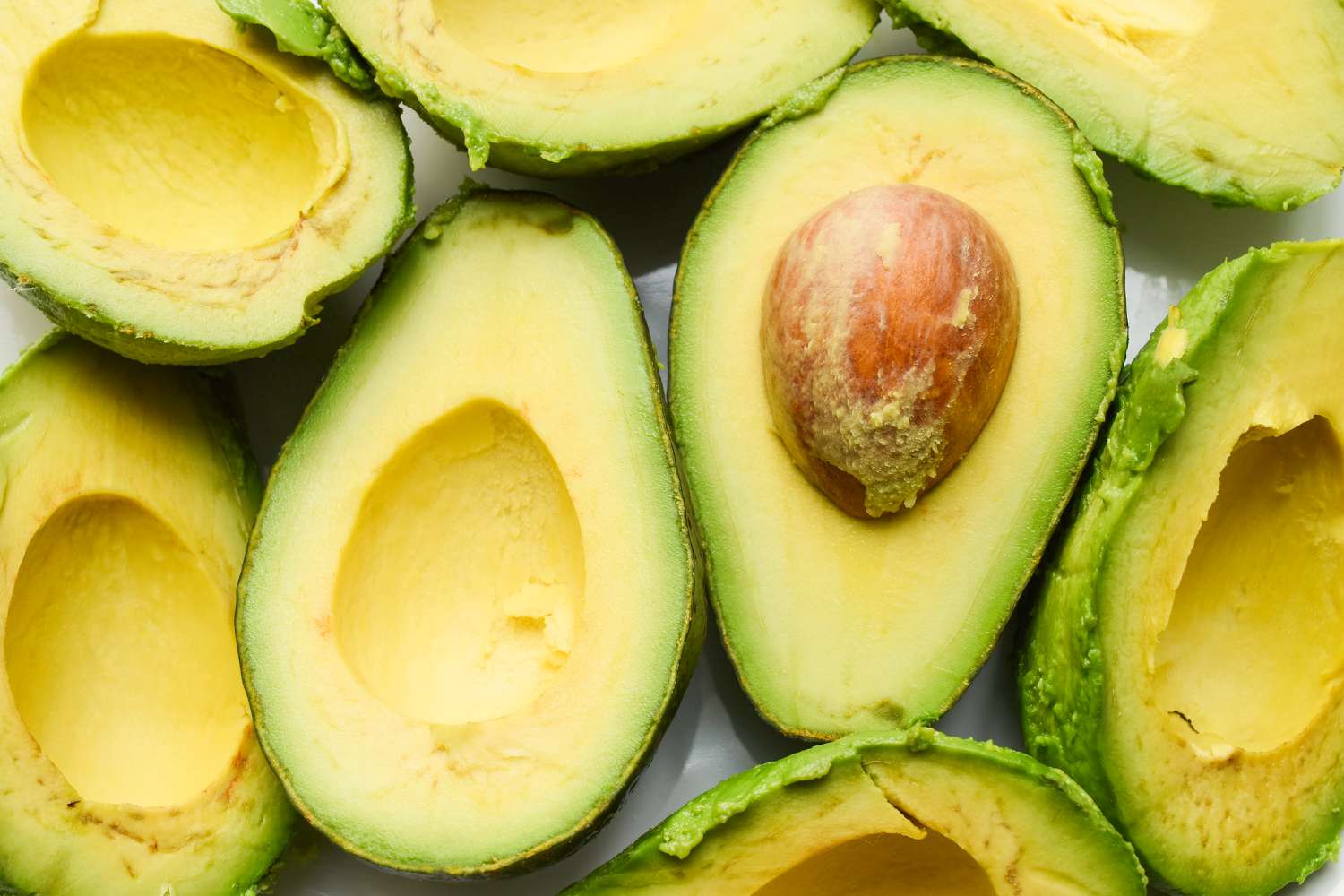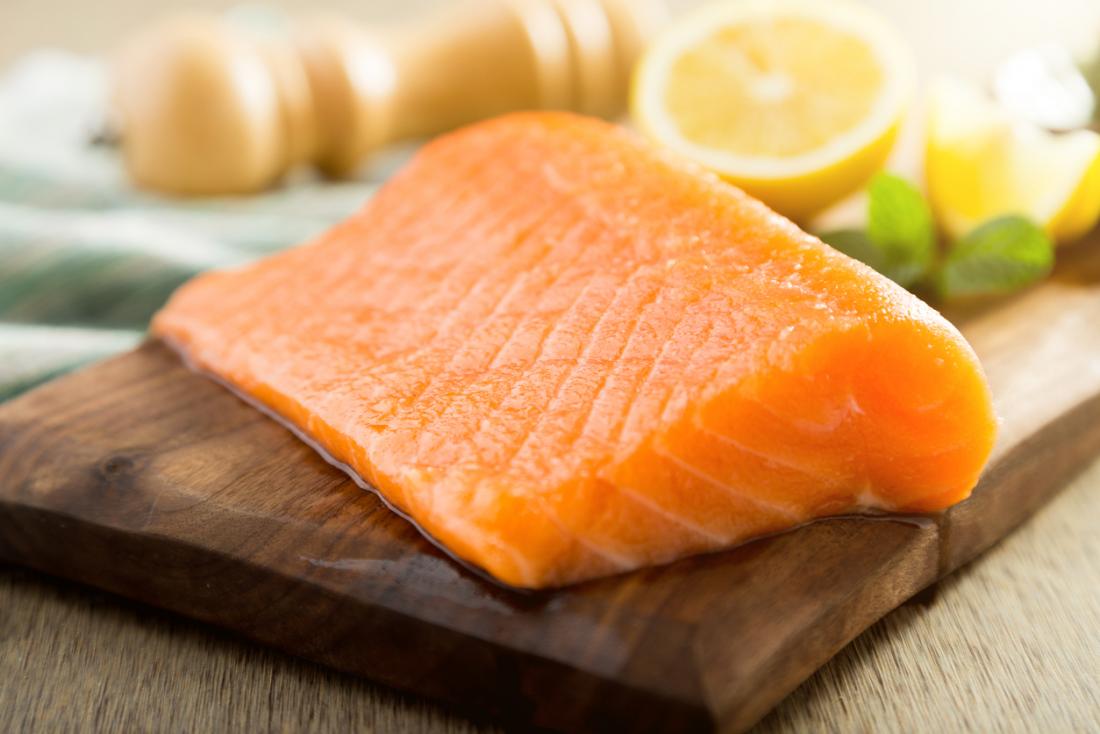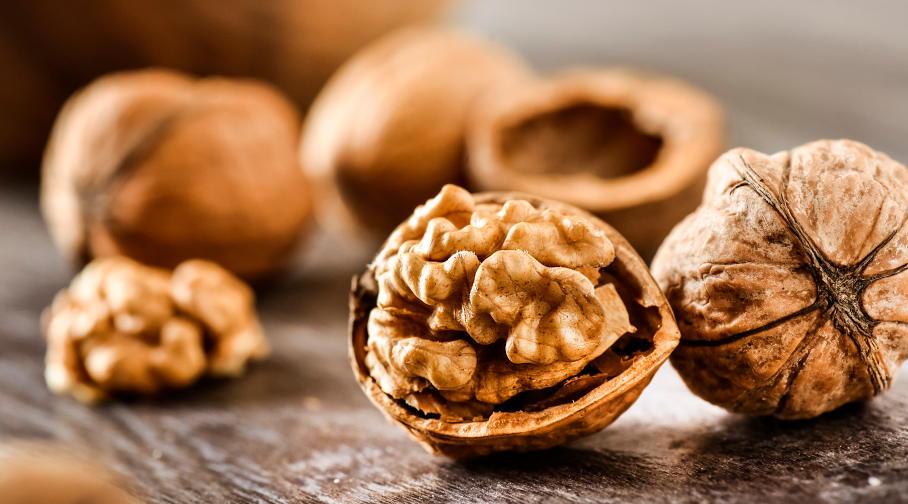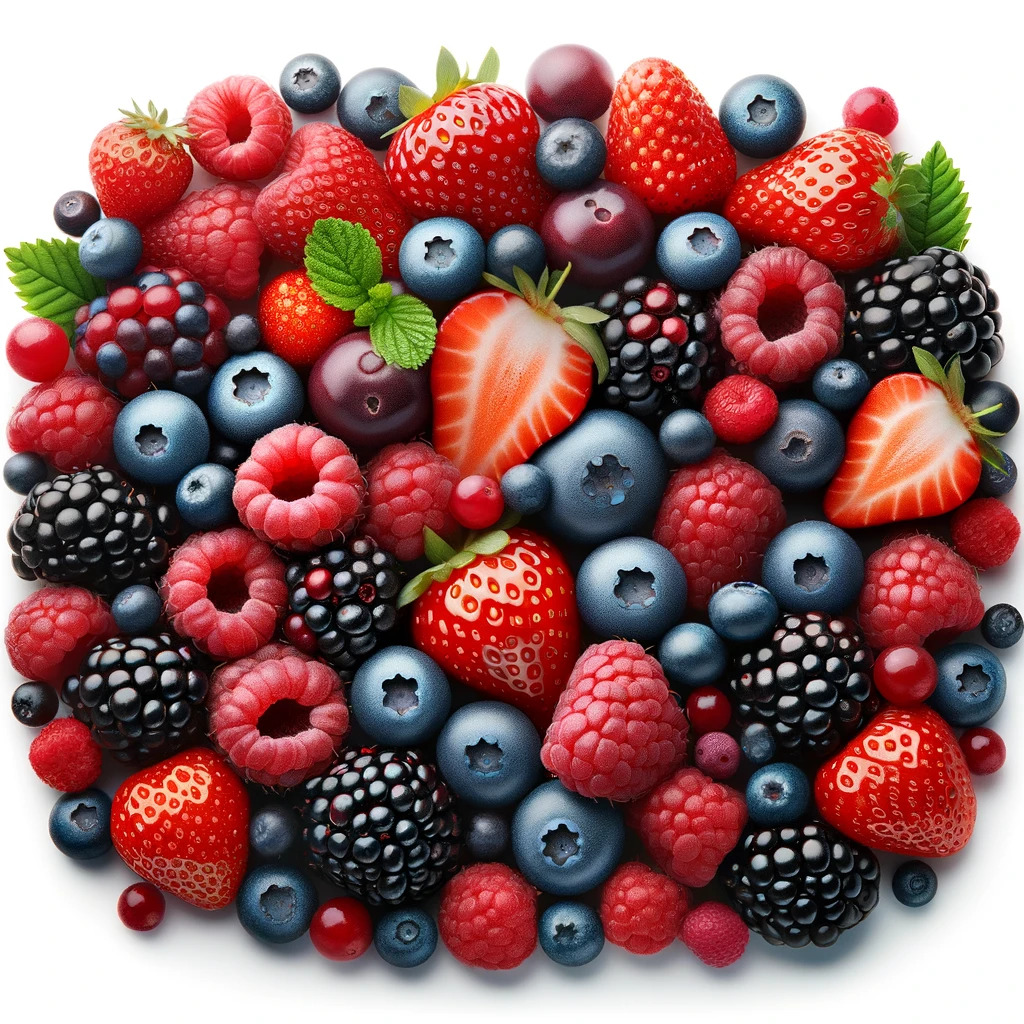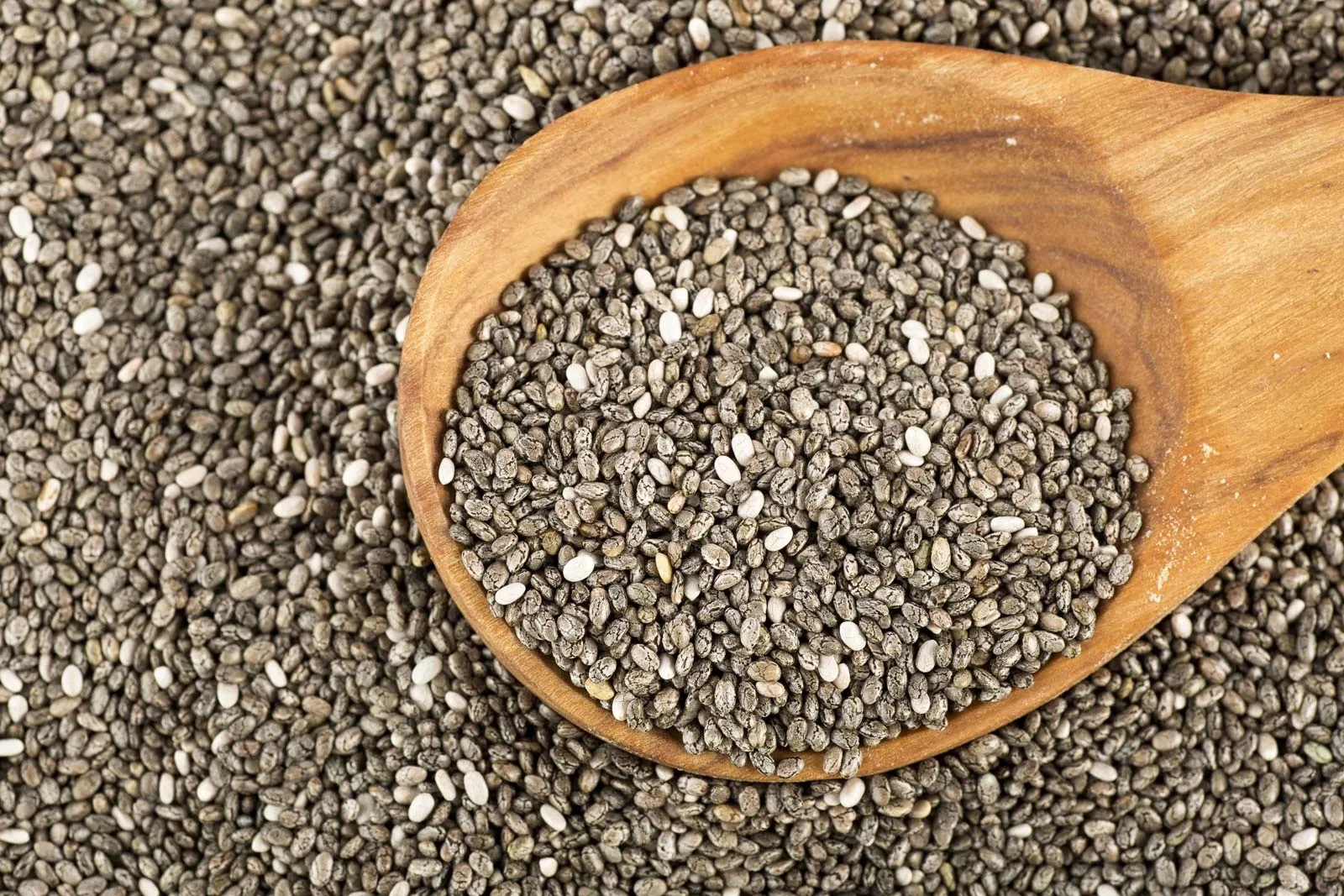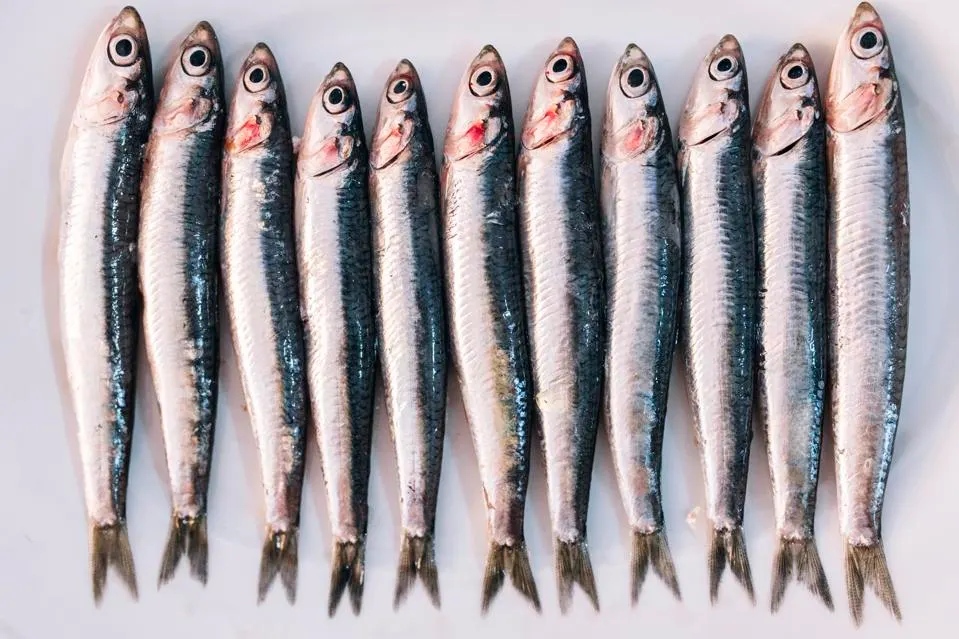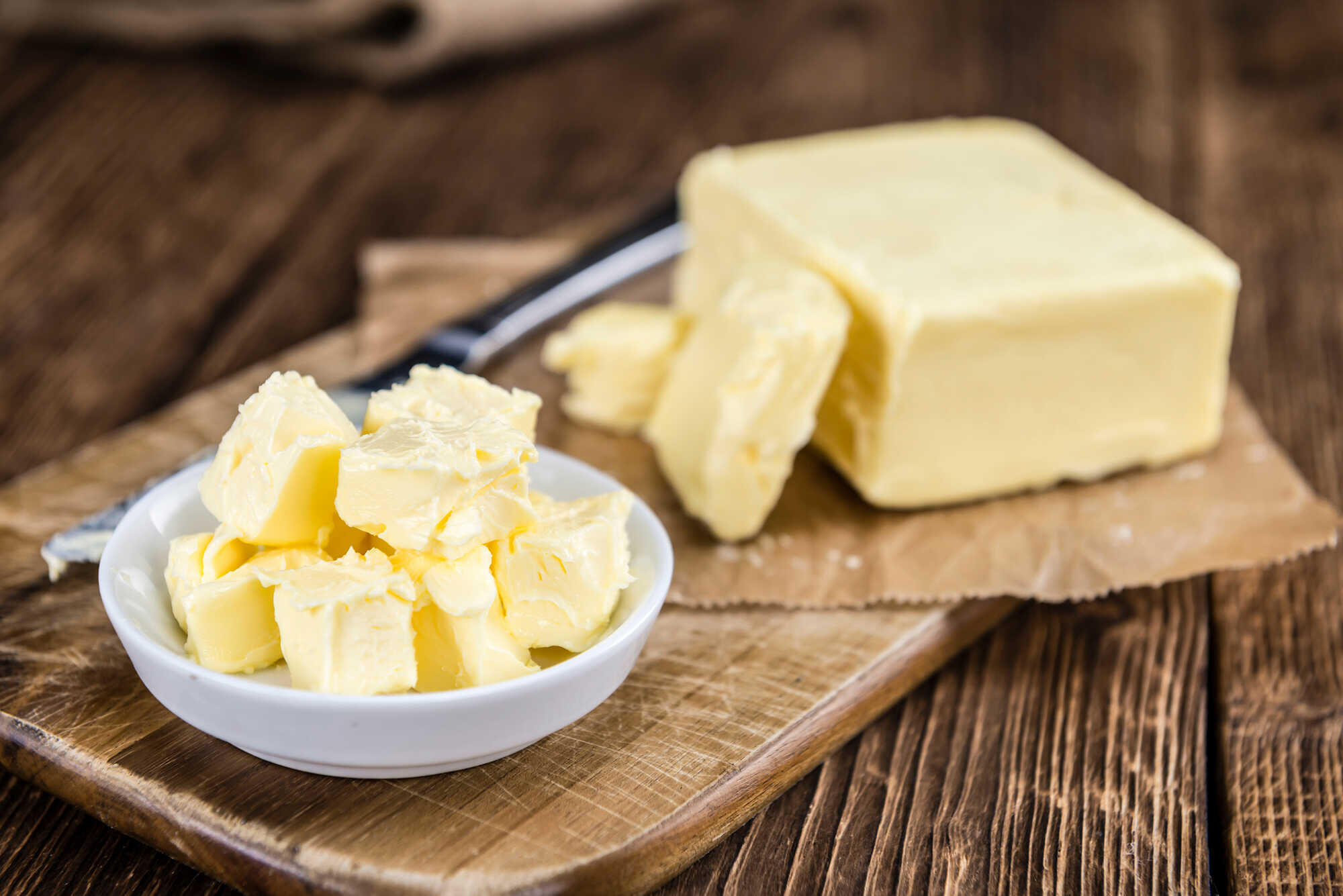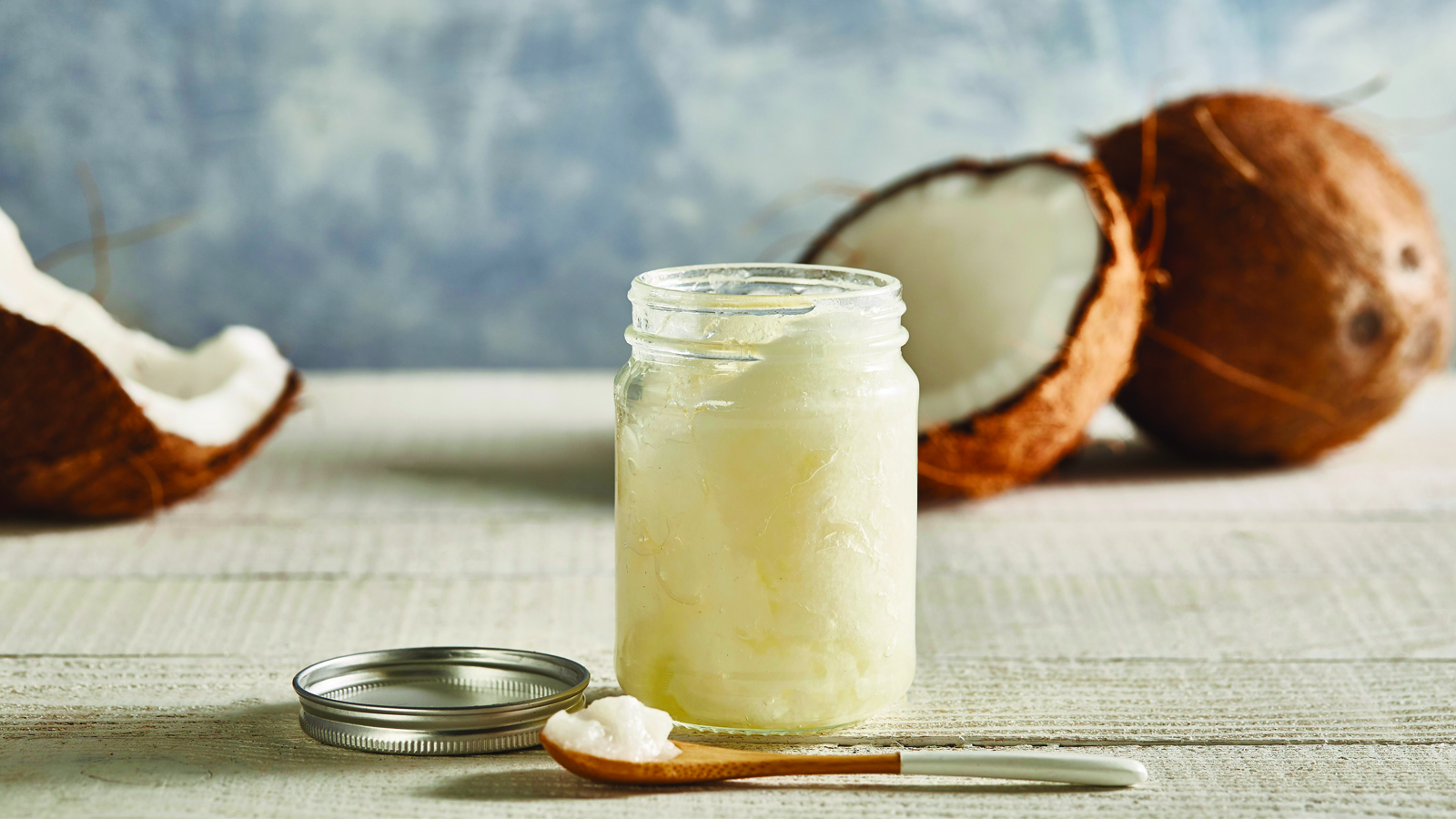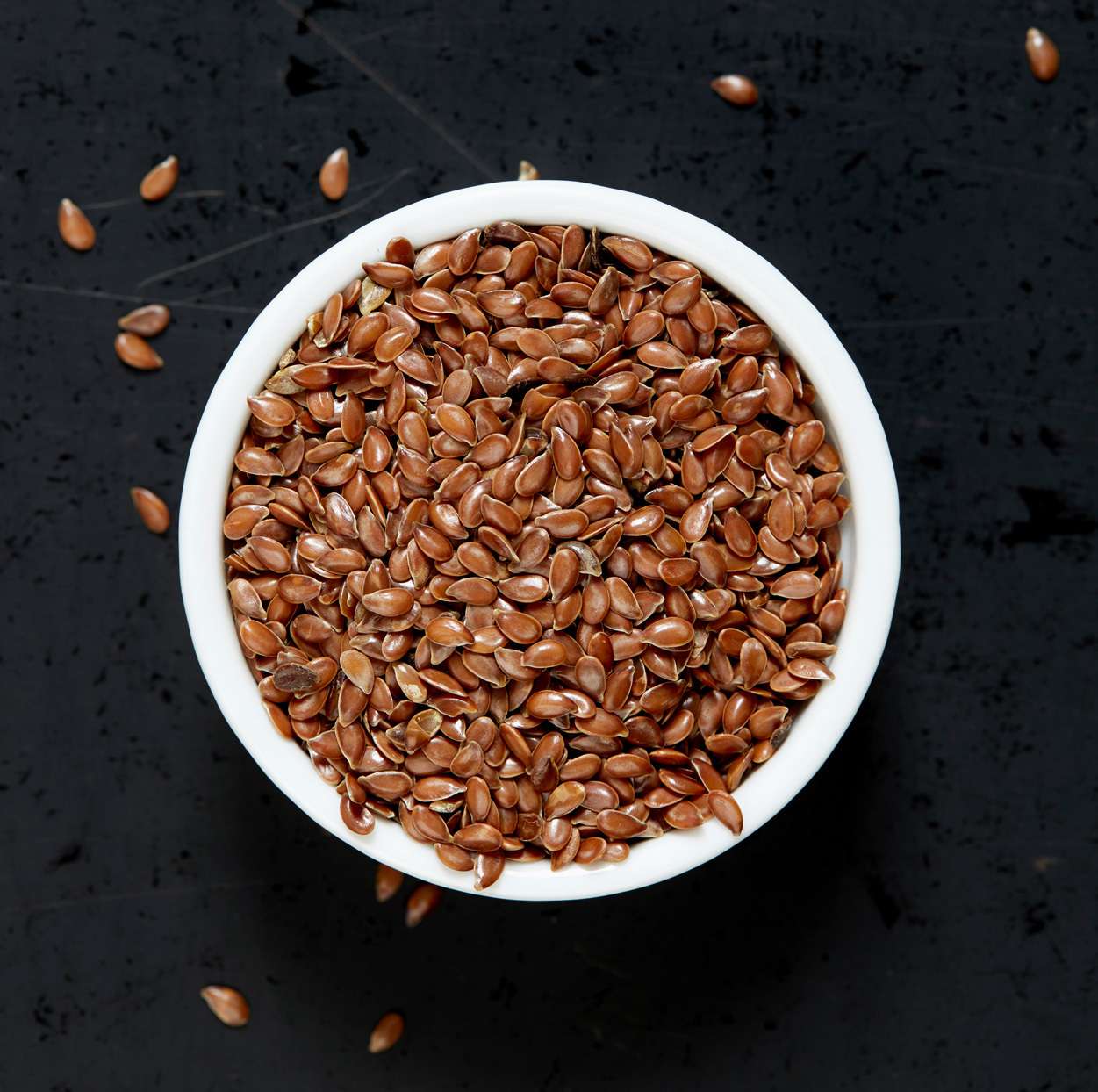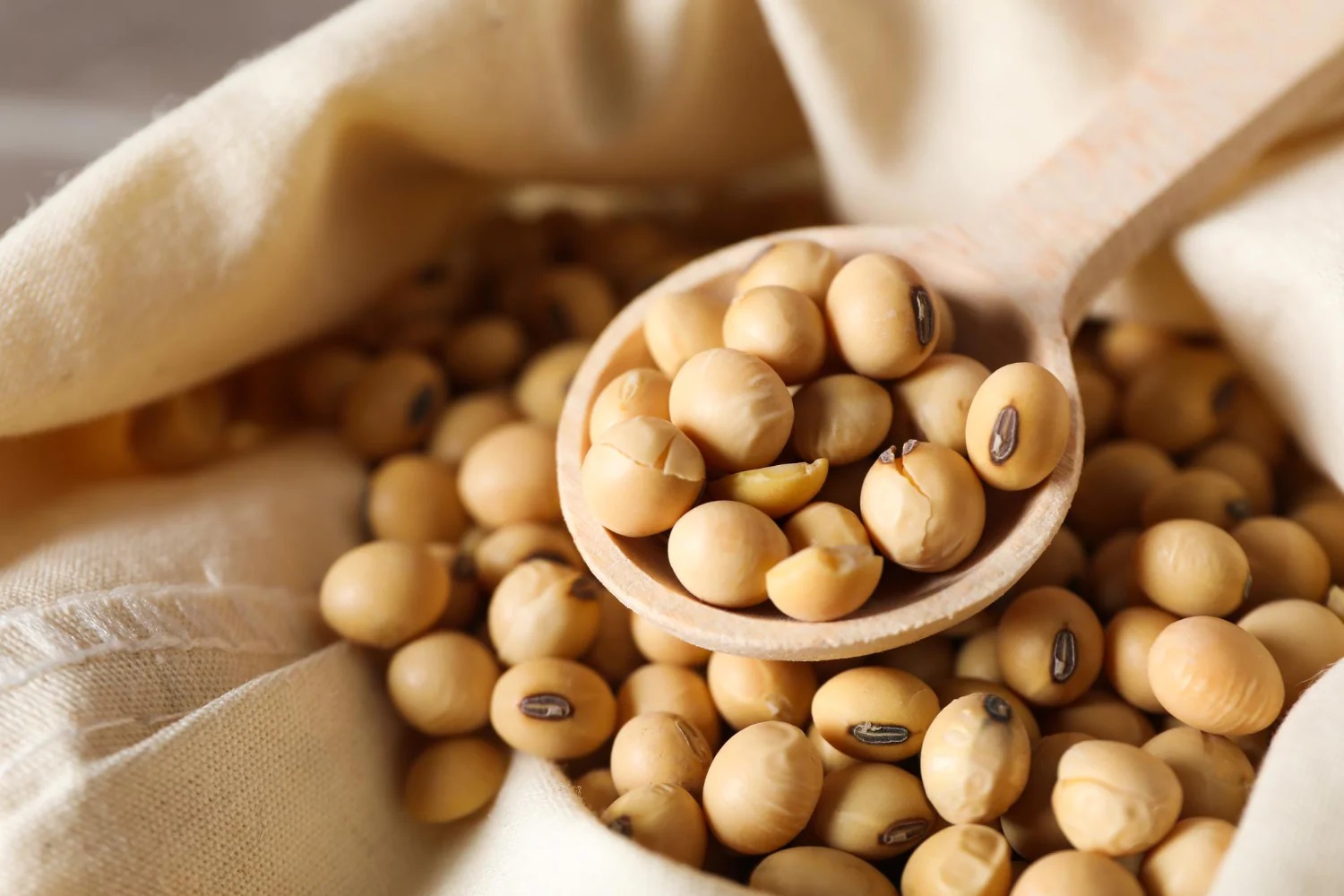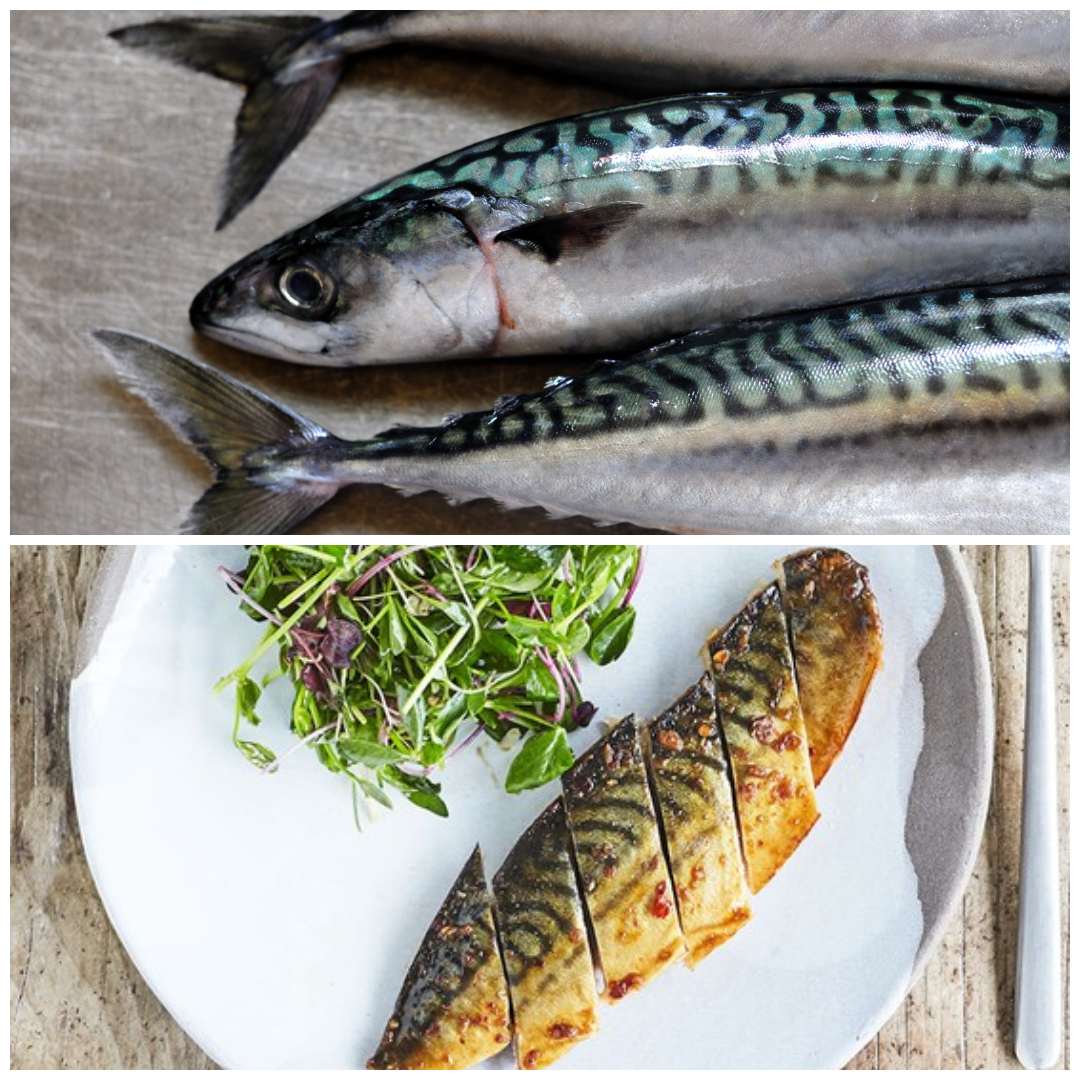![18 Healthy Fats For Brain Health [Foods For Cognitive Function]](https://www.hangrypants.com/wp-content/uploads/2024/12/3d0e29cf56284ba2/healthy-fats-for-brain-health.jpeg)
Did you know your brain is 60% fat? What you eat has a powerful impact on its performance. From boosting memory to protecting against cognitive decline, the right foods can sharpen your mind, improve focus, and even protect against neurodegenerative diseases like Alzheimer's.
In this article, we’ll explore brain-boosting foodsthat provide essential nutrients, especially healthy fats and omega-3 fatty acids, crucial for cognitive health. Whether you're looking to improve focus at work or protect your brain long-term, the foods you choose to eat can make all the difference.
The Importance Of Fats For Brain Health: Essential Nutrients For Cognitive Function
Fats are often misunderstood, but they play an essential role in brain function. In fact, healthy fatshelp create the structure of brain cells and facilitate the transmission of nerve signals.
To maintain and improve cognitive performance, it's crucial to consume brain-boosting fats, including omega-3 fatty acids and monounsaturated fats.
While fats have gotten a bad rap over the years, recent studies show that not all fats are created equal. In fact, the right fats can significantly boost brain function and protect against mental decline.
On the flip side, unhealthy fats-particularly saturated fats-can have the opposite effect, leading to inflammation and cognitive issues over time.
Key Fats For Brain Health:
- Omega-3 Fatty Acids(DHA, EPA)
- Monounsaturated Fats(Olive Oil, Avocados)
- Saturated Fats(Butter, Coconut Oil)
- Medium-Chain Triglycerides (MCTs)(Coconut Oil, MCT Oil)
The Brain-Boosting Power Of Omega-3 Fatty Acids: DHA And EPA For Cognitive Function
Omega-3 fatty acidsare essential for brain health, particularly two key types: DHA(docosahexaenoic acid) and EPA(eicosapentaenoic acid). These fats are vital for maintaining healthy brain cells and supporting cognitive functions such as memory, focus, and mental clarity.
- DHAis a crucial component of brain cell membranes and helps maintain their fluidity. It is found in high concentrations in the brain and is vital for improving memory and overall cognitive function.
- EPA, on the other hand, plays an anti-inflammatory role in the brain, which can help protect it from damage over time.
Why Omega-3s Matter For Brain Health:
- Boosts Memory and Learning:High levels of DHA have been shown to improve memory retention and learning ability.
- Protects Against Cognitive Decline:Regular consumption of omega-3-rich foods can slow the progression of diseases like Alzheimer's and dementia.
- Improves Mood:Omega-3s are linked to better emotional regulation and reduced symptoms of depression and anxiety.
Related: 20 Best Foods That Improve Memory And Brain Health
Top Healthy Fats For Brain Health
Now that we’ve covered the essential fats for brain health, let's dive into the top brain-boosting foodsthat provide these beneficial nutrients. From omega-3-rich fishto antioxidant-packed berries, these foods offer natural ways to enhance cognitive function.
1. Olive Oil: A Mediterranean Brain Booster
Extra-virgin olive oil (EVOO) is a staple in the Mediterranean diet and one of the healthiest fats you can incorporate into your meals. Packed with polyphenols, antioxidants, and healthy unsaturated fats, olive oil is known for its anti-inflammatory properties and positive effects on brain health.
- Brain Benefits:EVOO helps reduce inflammation in the brain, protecting against cognitive decline. Studies have shown that a Mediterranean diet rich in EVOO can enhance memory and brain function, even in older adults.
- How to Use:Drizzle EVOO over salads, add it to roasted vegetables, or use it as a cooking oil for healthier meal prep.
2. Avocados: The Creamy Brain Food
Avocados are a rich source of monounsaturated fats, which support brain function by improving blood flow and reducing inflammation. They’re also loaded with antioxidants, including vitamin E, which help protect brain cells from oxidative stress.
- Brain Benefits:Avocados have been linked to improved cognitive function and better memory retention. Their high fiber content also promotes gut health, which, in turn, supports brain health through the gut-brain axis.
- How to Use:Add avocado to salads, sandwiches, or smoothies for a delicious and brain-boosting snack.
3. Oily Fish
Oily fish like salmon, sardines, mackerel, and tunaare rich in omega-3 fatty acids, particularly DHA and EPA, which are critical for maintaining brain function and protecting against cognitive decline.
- Brain Benefits:These fish provide a direct source of DHA, which is essential for memory, learning, and overall brain health. They also contain EPA, which helps reduce neuroinflammation.
- How to Use:Enjoy grilled or baked fish for a healthy dinner, or add canned sardines to salads for a quick brain-boosting meal.
4. Walnuts: The Nut That Sharpens Your Mind
Walnuts are a powerhouse of nutrients that support brain health. They’re an excellent source of omega-3 fatty acids, specifically ALA(alpha-linolenic acid), which can convert into EPA and DHA in the body. They also contain antioxidants, vitamins, and minerals that support overall cognitive function.
- Brain Benefits:Studies suggest that regular walnut consumption can improve memory and cognitive performance in both adults and older adults.
- How to Use:Add walnuts to your morning oatmeal, sprinkle them over salads, or enjoy them as a snack.
5. Berries: Antioxidant-Packed Protectors Of Brain Cells
Berries, especially blueberries, are rich in antioxidants, particularly flavonoids, which help protect the brain from oxidative stress and inflammation.
- Brain Benefits:Research shows that berries can improve memory, delay brain aging, and reduce the risk of cognitive decline.
- How to Use:Enjoy berries as a snack, add them to smoothies, or top your yogurt with them for a brain-boosting breakfast.
6. Eggs: The Choline-Rich Brain Booster
Eggs are one of the best sources of choline, a nutrient that is critical for brain function. Choline helps produce acetylcholine, a neurotransmitter involved in memory and muscle control.
- Brain Benefits:Adequate choline intake is essential for cognitive health, and deficiencies have been linked to memory problems and other cognitive impairments.
- How to Use:Scramble eggs for a quick breakfast, or add them to salads and sandwiches for a nutrient-packed meal.
7. Dark Chocolate: A Delicious Way To Boost Brain Health
Dark chocolate, particularly varieties with 70% cacao or more, is packed with antioxidants that help improve blood flow to the brain and support cognitive function.
- Brain Benefits:Dark chocolate has been linked to improved memory, focus, and cognitive function due to its flavonoids and the stimulating effects of caffeine.
- How to Use:Enjoy a small piece of dark chocolate as an afternoon treat, or add it to smoothies for a rich, brain-boosting twist.
8. Coffee: A Caffeine-Powered Focus Booster
Coffee is widely known for its caffeine content, which can improve focus, alertness, and cognitive performance. But coffee also contains antioxidantsthat protect the brain from oxidative stress.
- Brain Benefits:Moderate coffee consumption has been associated with improved memory, enhanced cognitive function, and a lower risk of Alzheimer's.
- How to Use:Sip on a cup of coffee in the morning to jump-start your brain and boost focus for the day ahead.
9. Herring: A Nutrient-Rich Fish For Brain Health
Herring, like other fatty fish, is rich in omega-3 fatty acids(especially DHA and EPA), which are crucial for maintaining brain function. This oily fish offers a variety of benefits for cognitive health, including improved memory and protection against brain aging.
- Brain Benefits:Rich in omega-3s, herringsupports brain structure and function, particularly by contributing to the fluidity of brain cell membranes. Regular consumption can enhance cognitive performance and reduce the risk of neurodegenerative diseases.
- How to Use:Herring is commonly found canned or pickled and can be added to salads or enjoyed with whole-grain crackers for a quick snack.
See Also: How To Steam Fish Easily - 5 Methods For Tender, Perfect Results
10. Tuna: A Brain-Boosting Protein Source
Tuna, particularly wild-caughttuna, is another excellent source of omega-3 fatty acids, particularly DHA and EPA. Along with protein and essential vitamins, tuna offers significant benefits for cognitive health.
- Brain Benefits:Consuming tuna regularly can improve memory and support overall brain function. Its omega-3 content helps reduce inflammation in the brain, which is a key factor in protecting against age-related cognitive decline.
- How to Use:Tuna can be enjoyed in a variety of ways—try it in salads, sandwiches, or even mixed with avocado for a healthy brain-boosting dish.
11. Chia Seeds: A Plant-Based Source Of Omega-3s
Chia seeds are a small but mighty superfood that packs a punch when it comes to brain health. They are an excellent source of ALA(alpha-linolenic acid), a plant-based omega-3 fatty acid that can be converted into DHA and EPA in the body.
- Brain Benefits:Chia seeds are not only rich in omega-3s but also contain antioxidants, fiber, and protein, all of which support cognitive function. Studies suggest that regular consumption of chia seeds can improve brain performance and protect against inflammation.
- How to Use:Add chia seeds to smoothies, sprinkle them on oatmeal, or mix them into yogurt for a nutritious, brain-boosting snack.
12. Leafy Greens: Antioxidants And Nutrients For Brain Health
Leafy greens, such as spinach, kale, and collard greens, are packed with vitamins, antioxidants, and minerals that support brain health. These nutrient-dense vegetables can play a key role in improving cognitive function and protecting against brain aging.
- Brain Benefits:Leafy greens are rich in vitamin K, folate, and lutein, which are essential for brain health. Their antioxidant properties help protect the brain from oxidative damage, and their high fiber content supports overall health.
- How to Use:Incorporate leafy greens into salads, soups, or smoothies for an easy and effective way to boost brain health.
13. Anchovies: Small Fish, Big Brain Benefits
Anchovies are another nutrient-rich fish that provide an abundance of omega-3 fatty acids, especially DHA and EPA, which are critical for maintaining optimal brain function.
- Brain Benefits:Like herring and other fatty fish, anchovies support brain structure and function, reducing the risk of cognitive decline and promoting better memory and mental clarity.
- How to Use:Anchovies can be added to salads, pasta dishes, or even used as a topping on pizzas to enjoy their brain-boosting benefits.
14. Butter: The Debate Over Saturated Fat
Butter, while high in saturated fat, is a topic of much debate in the world of nutrition. While moderate consumption of butter may be fine for some individuals, it’s important to approach it with caution when it comes to brain health.
- Brain Benefits:While butter contains beneficial butyrate(a short-chain fatty acid), excessive consumption of saturated fat has been linked to an increased risk of inflammationin the brain, which may contribute to cognitive decline over time. For this reason, it is best consumed in moderation.
- How to Use:Use butter sparingly in cooking or opt for healthier alternatives like olive oil or avocado for everyday use.
Read Also: How To Make Flavored Butter [12 Tasty Recipes]
15. Coconut Oil: A Saturated Fat With Cognitive Benefits
Coconut oil is unique in that it contains medium-chain triglycerides(MCTs), a form of saturated fat that can provide quick energy to the brain and improve cognitive performance.
- Brain Benefits:MCTs are converted into ketones, an alternative energy source for the brain that may be particularly helpful for individuals with Alzheimer’s or other cognitive disorders. While coconut oil has cognitive benefits, it should still be consumed in moderation due to its high saturated fat content.
- How to Use:Use coconut oil for medium-heat cooking, baking, or in smoothies to boost brain energy without spiking inflammation.
16. Flaxseeds: A Plant-Based Omega-3 Source
Flaxseeds are another excellent source of ALA, a type of omega-3 fatty acid that supports brain function and overall health. These tiny seeds also contain fiber, antioxidants, and protein, making them a perfect addition to a brain-boosting diet.
- Brain Benefits:Flaxseeds may help reduce inflammation in the brain, improve cognitive function, and protect against oxidative stress, all of which are critical for maintaining mental clarity and memory.
- How to Use:Ground flaxseeds can be sprinkled on cereal, blended into smoothies, or mixed into baked goods for a nutritious boost.
17. Soybeans: A Plant-Based Protein Powerhouse
Soybeans are a rich source of plant-based protein and provide essential amino acids needed to support brain health. These legumes are also packed with antioxidants and phytoestrogens that may help protect the brain, particularly in aging individuals.
- Brain Benefits: Soybeans are believed to support memory and cognitive function, and their phytoestrogens may offer protective effects against cognitive decline, especially in women.
- How to Use: Incorporate soy-based products like tofu, tempeh, or edamame into your diet. You can also add soy milk to smoothies or cereals for an extra brain-boosting protein punch.
18. Mackerel: A Fatty Fish Full Of Omega-3s
Mackerel is a fatty fish that's rich in both DHAand EPA (eicosapentaenoic acid), two omega-3 fatty acids that are crucial for brain function. Mackerel is also a great source of vitamin D, which supports mood regulation and cognitive performance.
- Brain Benefits: The high levels of omega-3s in mackerel help improve cognitive function, enhance memory, and protect the brain from inflammation, while the vitamin D supports mental clarity.
- How to Use: Enjoy mackerel grilled, baked, or in a salad. For a simple and nutritious meal, try pairing mackerel with leafy greens or whole grains to support overall brain health.
You Might Like: 22 Best Foods That Help Reduce Bloating Fast
FAQs
Can I Boost My Memory With A Specific Diet?
Yes, foods rich in omega-3 fatty acids, antioxidants, and B vitaminscan help boost memory. DHA, found in oily fish like salmonand sardines, is crucial for memory formation and brain cell structure. Antioxidants from berriesand dark chocolateprotect brain cells from oxidative stress, which can impair memory.
What Are The Best Foods For Brain Function After 50?
As we age, our brain health becomes more important. Omega-3 fatty acids (found in oily fishlike salmon, mackerel, and sardines), antioxidants (from berriesand leafy greens), and healthy fats (like avocadoand olive oil) can help maintain cognitive function and prevent age-related cognitive decline. Choline(found in eggs) is also essential for memory and may support brain function in later years.
Is Coconut Oil Really Good For Your Brain?
Coconut oilcontains medium-chain triglycerides (MCTs), which can be converted into ketones, an alternative energy source for the brain. Some studies suggest that MCTs may be beneficial for those with Alzheimer's disease.
Can Brain-boosting Foods Improve Focus And Concentration?
Yes, coffee(rich in caffeine) can enhance focus and improve cognitive performance. Dark chocolate, which contains flavonoids, also helps with brain circulation and focus.
Conclusion
Maintaining brain health is not just about eating the right foods-it’s about creating a dietary pattern that supports your cognitive function over time. Incorporating brain-boosting foodslike omega-3-rich fish, antioxidant-packed berries, and healthy fatslike olive oilcan make a significant difference in how well your brain functions now and in the future.
Start small-maybe by adding a handful of walnutsto your breakfast or swapping out processed snacks for a piece of dark chocolate. With consistent effort, these brain-boosting foods can help you maintain focus, memory, and overall cognitive health.
Don’t wait for the signs of cognitive decline-take action today and start nourishing your brain for a healthier, sharper tomorrow.

